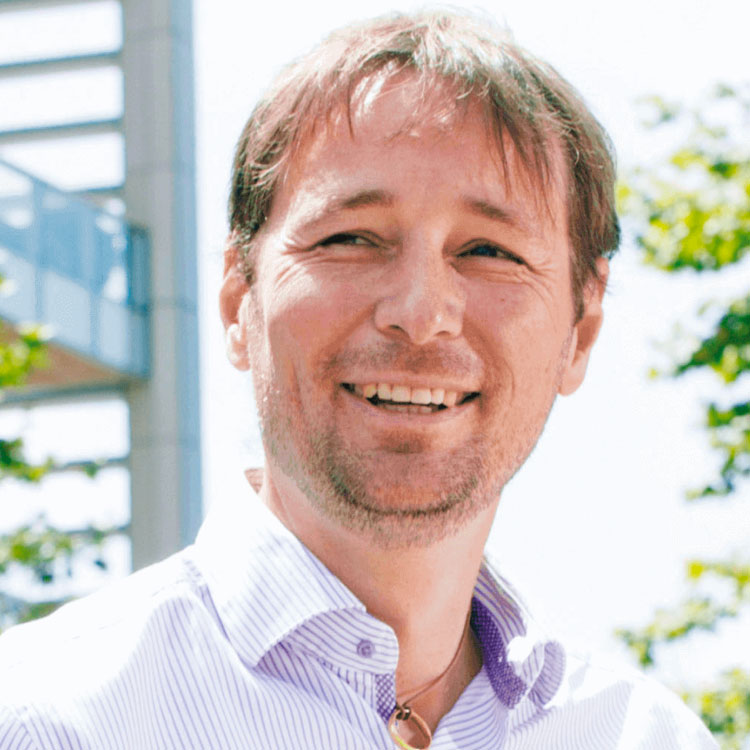Pieter Dorrestein, Ph.D.
Professor, Skaggs School of Pharmacy and Pharmaceutical Sciences, Departments of Pharmacology and Pediatrics

Pieter Dorrestein, Ph.D.
Professor Skaggs School of Pharmacy and Pharmaceutical Sciences, Departments of Pharmacology and Pediatrics
Research Interests
Our work aims to develop new mass spectrometry-based methods to understand the chemistry of microbes, our microbiome and their ecological niche. In short, we develop tools that translate the chemical language between cells. This research requires the understanding of (microbial) genomics, proteomics, imaging mass spectrometry, genome mining, enzymology, small molecules structure elucidation, bioactivity screening, antibiotic resistance and an understanding of small molecule structure elucidation methods. The collaborative mass spectrometry innovation center that he directs is well equipped and now has twelve mass spectrometers, that are used in the studies to investigate capture cellular chatter (e.g. metabolic exchange), metabolomics, metabolism and to develop methods to characterize natural products. These tools are used to defining the spatial distribution of natural products in 2D, 3D and in some cases real-time. Areas of recent research directions are capturing mass spectrometry knowledge to understand the microbiome, non-invasive drug metabolism monitoring, informatics of metabolomics, microbemicrobe, microbe-immune cells, microbe-host, stem cell-cancer cell interactions and diseased vs. non-disease model organisms and the development of strategies for mass spectrometry based genome mining and to detect and structurally characterize metabolites through crowd source annotation of molecular information on the Global Natural Products Social Molecular Networking at http://gnps.ucsd.edu through the NIH supported center for computational mass spectrometry that is co-developed with Nuno Bandeira
Selected Publications
Quinn R. A., et al. Global chemical effects of the microbiome include new bile-acid conjugations. Nature 2020, 579, 123–129. DOI:10.1038/s41586-020-2047-9.
Nothias Louis-Felix, Petras Daniel, Schmid Robin, et al., Feature-based molecular networking in the GNPS analysis environment. Nature Methods 17, (2020): 905–908. DOI:10.1038/s41592-020-0933-6
Jarmusch Alan, et al., ReDU: a framework to find and reanalyze public mass spectrometry data. Nature Methods, 17 (2020) 901–904.
Wang Mingxun, et al., Mass spectrometry searches using MASST. Nature Biotechnology, 38 (2020) 23–26.
Nothias Louis-Felix, Petras Daniel, Schmid Robin, et al., Feature-based molecular networking in the GNPS analysis environment. Nature Methods 17, (2020): 905–908. DOI:10.1038/s41592-020-0933-6
Quinn, R. A.; Comstock, W.; Zhang, T.; Morton, J. T.; da Silva, R.; Tran, A.; Aksenov, A.; Nothias, L.-F.; Wangpraseurt, D.; Melnik, A. V.; et al. Niche partitioning of a pathogenic microbiome driven by chemical gradients. Sci Adv 2018, 4 (9), eaau1908 DOI: 10.1126/sciadv.aau1908.
